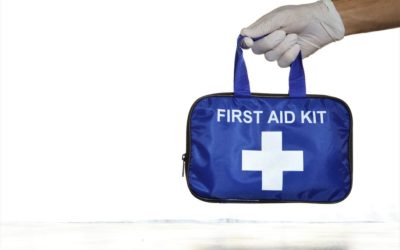What can you do to improve your leaking?
We all have habits. Most of the time, we don’t really think about these habits. I tend to drink water while working but I couldn’t tell you how many glasses I drank yesterday. We all know that the more we drink, the more we have to pee. While it is easy to see the correlation between drinking water and peeing-, some of the correlations between a habit and leaking aren’t quite as straightforward. So what behaviors will decrease your bladder leakage?
The first step is to take the time to really examine your habits. Usually this involves writing down everything that you eat and drink in a 24 hour period. We use 24 hour diaries to do this. While this may sound like a pain (and it kinda is), you will likely find innocent little habits that are stopping your progress. Modifying habits is often the first step in improving a health condition (see my post on this). You have the power to change, even if it isn’t easy. And like so many things, it often comes down to eating better and exercising more.
Habits that impact bladder function
What behaviors have been shown to decrease bladder leakage? Here is a list to help you focus on the changes that have been shown to work. And good luck with making these changes!
Lose weight
Heavier women are more likely to have stress urinary incontinence and mixed urinary incontinence. This is reversible- weight loss improves the leakage. Participants in a study from the New England Journal of Medicine lost an average of 17lb and they leaked 50% less frequently. Weight loss of 5-10% of total body weight has been shown to reduce bladder leaking. One more perk to getting lean!
Exercise more
Moderate exercise makes leaking less common. It isn’t really clear if this is because of improved muscle strength, weight control, or both. And this is just general exercise, not pelvic floor muscle training or kegel regimens. So get out there and move because changing this behavior will decrease your leaking!
Quit smoking
Smokers may have more severe urinary incontinence. One more reason to quit. This is a recurrent theme in medicine- nothing good comes from smoking.
Drink less fluid
You should NOT dehydrate yourself. But a small decrease in fluids can help bladder leakage. So many of us drink more than we need to. Journal how much you drink in a day. Look at when you drinking, how much you are drinking, and when your bladder is acting up. I’ve seen lots of women who do this, identify their problem and then correct it on their own. But the first step is the journaling with a 24 hour voiding diary. This small change can dramatically decrease bladder leakage.
Consume less caffeine
I do love my coffee. But research shows that reducing caffeine intake can help leaking. And remember that decaf has caffeine too- pay attention to all your drinks, not just coffee and tea!
Avoid constipation
The data on constipation isn’t totally clear but constipated women tend to have more leaking. I’ve seen many women get better by correcting their constipation. And constipation is uncomfortable. So add a little more fiber and water to your diet .
Avoid bladder irritants
I like to think of the bladder as an irritable toddler. There are definately things that can set your bladder off. Every bladder responds a little differently, some of the foods on the list may not bother you. The most common bladder irritants are:
- carbonated drinks
- coffee/tea
- alcohol
- sugar/artifical sweetners
- citrus food and drinks
- spicy foods
- chocolate
- milk or milk based products
- corn syrup
Avoiding these triggers can decrease bladder leakage.
- Subak LL NEJM 2009;360(5):481-90.
- Wing RR et al. Obstet Gynecol (2010);116(2P1):284-92.
- Dumoulin C et al Neurourol Urodyn (2016);35:15-20.
Lucacz ES et al. JAMA (2017);318(16):1592-1604.






My bladder only leaks at night, while I am sleeping. I have no trouble at all during the day. Since I have given up all caffeine (including decaf) and timed what/how much fluid I consume, the situation has improved. But what causes it remains a mystery to me and I would love to know the cause. My urologist is also baffled.
There are different medical conditions that can cause you to make more urine at night which can result in getting up frequently to pee OR leaking at night. I usually start with a 24 hour voiding diary and have you measure the amount you are emptying. This can diagnose nocturnal polyuria (making too much urine at night) and then help you figure out what diagnostic testing might be needed.